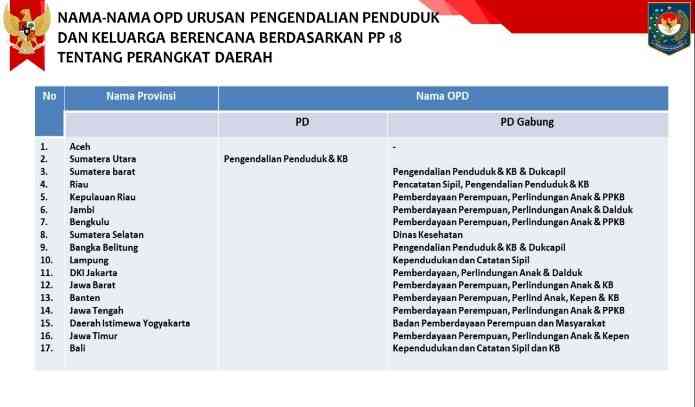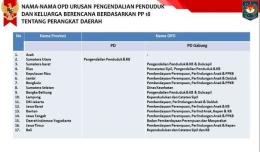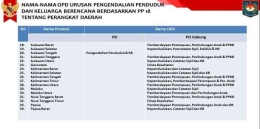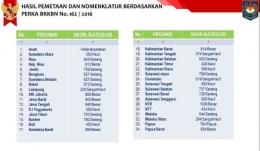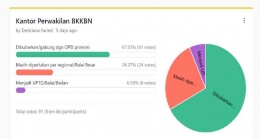KANTOR PERWAKILAN BKKBN RIWAYATMU KINI
NATIONAL POPULATION AND FAMILY PLANNING AGENCY REPRESENTATIVE OFFICE YOUR HISTORY PRESENT
ABSTRACT
In historical developments, theories and ideas about the organization of power and state organizations have developed very rapidly. 23 The various structures and functions of state organizations and institutions have developed in many forms and forms, both at the central or national level as well as at the regional or local level. Symptoms of such developments are an unavoidable reality due to real demands and needs, both due to social, economic, political and cultural factors amidst the increasingly complex dynamics of the wave of influence of globalism versus local wisdom today.
In fact, all the styles, forms, buildings and organizational structures that exist only reflect the response of the state and decision makers within a country who organize various interests and arise in the society of the country concerned. Because the interests that emerged were developing very dynamically, the organizational style of the state also developed with its own dynamics.
Law Number 52 of 2009 concerning Population Development and Family Development regulates institutions in the Regions in the form of the BKKBD (Regional Population and Family Planning Agency) and the issuance of Presidential Regulation Number 62 of 2010, the National Family Planning Coordinating Board changed to the Population and Family Planning Agency National. Furthermore, the institutional arrangements for the BKKBN are regulated in Presidential Decree No. 3 of 2013 and Presidential Decree No. 4 of 2014. Presidential Regulation No. 3 of 2013 stipulates that the BKKBN is domiciled and responsible to the President through the Minister of Health.
The position of BKKBN under the Minister of Health illustrates that the tasks of population control, family planning and family development are more directed towards clinical approaches and services as was done in the early stages of the development of family planning programs in Indonesia in the 1970s.
Based on Law Number 52 of 2009, the duties and responsibilities of the BKKBN are not only family planning and family welfare clinical services, but have been expanded to include the task of formulating policies and strategies for population control, family planning and fostering family welfare. Law Number 52 of 2009 has positioned the BKKBN as an institution that not only coordinates with various ministries/LPNKs including social organizations, but also participates in being the executor of various sectoral laws.
Such a task of the BKKBN requires a review of the position of the BKKBN so that it is able to effectively carry out the duties and missions of the state government in the areas of population control, family planning and family welfare.
Keywords: organizational structure, institutions, powers and affairs of concurrent government
Pendahuluan







